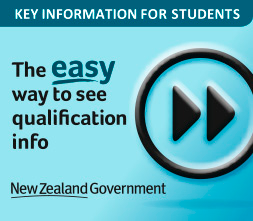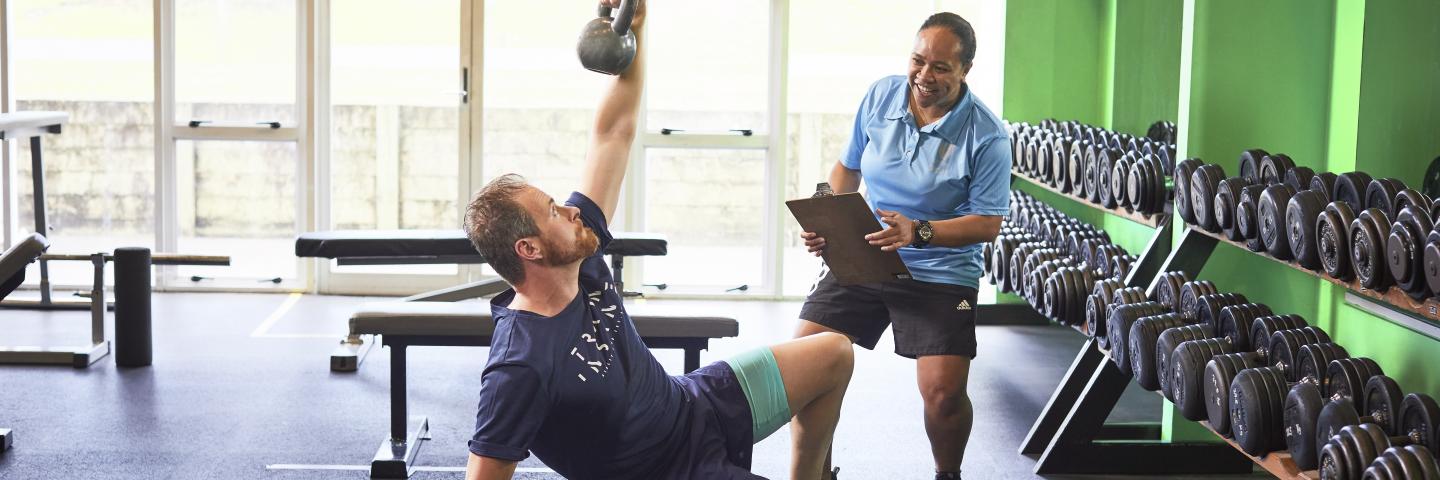Programme overview
The New Zealand Diploma in Sport, Recreation, and Exercise is a contemporary and career-focused programme that provides a mix of practical sessions, classroom-based activities, and in-industry learning. You’ll enjoy interactions with a variety of organisations within the sector who have been key employers of our graduates for over twenty years. You may even work with some of them through organised work placements.
You can choose to focus on Exercise, Coaching, or Community Sport and Recreation, and there’s plenty of flexibility to fit your study around your work and whānau commitments.
Exercise: Design great personalised exercise programmes to improve lives
You’ll learn how to create personalised exercise programmes, tailored to suit individual needs, then deliver them to clients to help them achieve their health and fitness goals. You’ll gain an understanding of how to design and deliver small group programmes, and you’ll also be able to turn your passion into a business by utilizing key marketing and business skills.
By completing this stream, be eligible to apply for a listing on to the NZ Register of Exercise Professionals (REPs).
Coaching: Learn to get the best out of an athlete or sports team
You’ll learn about best practice coaching techniques and strategies. From here, you’ll put them into practice by coaching individuals and teams, and use this experience to reflect and improve upon your own coaching style within your chosen sports code.
Community Sport and Recreation: Implement strategies to improve the health and wellness of your community
You’ll learn about how community sport and recreation currently operates in New Zealand, and develop the skills required to engage with people and groups to meet their community sport and recreation goals. From there, you’ll have the opportunity to integrate and facilitate the implementation of a wide range of initiatives for community wellbeing.
What you’ll learn
- Hauora (health and wellbeing)
- Strength and conditioning
- Sport psychology
- Physical activity
- Sport leadership
- Skills coaching
- School sport
Highlights
- Flexibility in how you complete this programme, with both full-time (1 year) and part-time (2 years) options available both during the day and in evenings
- You’ll learn really practical skills like designing and delivering personalised exercise programmes, or coaching a sports team so that you can get going immediately once you graduate
- You’ll develop transferable skills like event management, leadership, and digital skills, so you’ll be able to work in many different areas of the fitness industry, as well as other industries
- You’ll be taught by knowledgeable and passionate staff who are highly connected to the industry
- We’ll help you find an organisation with whom you’ll have the opportunity to complete at least 55 hours of facilitated work experience
- You’ll have access to a range of sport and gym facilities while you study
- If you graduate from the Exercise stream, you’ll be eligible to apply for a listing on to the NZ Register of Exercise Professionals (REPs).
Want More Information?
Feel free to contact the team with any further questions!
Admission requirements
Domestic students
International students
This programme is not open to international students.
Courses and timetables
For more details on the courses including timetables, please click on the course names below.
Debug
| Courses | Credits | Aim |
|---|---|---|
| Contemporary Learning Options(SPOR5100) | 15.0 credits (0.125 EFTS) | To equip students with a range of practical skills that will enable them to operate effectively as a professional in a variety of sport, recreation, and exercise settings. |
| Concepts of Sport and Exercise Science(SPOR5104) | 15.0 credits (0.125 EFTS) | This course will introduce underlying principles of sport and exercise science as and allow students to apply them in a variety of contexts related to health, well-being, physical activity, and performance. |
| Professional Practice(SPOR5109) | 15.0 credits (0.125 EFTS) | The purpose of this course is to explore contemporary practice in a range of sport, recreation and exercise contexts to develop the learners’ professional capabilities for this sector. |

